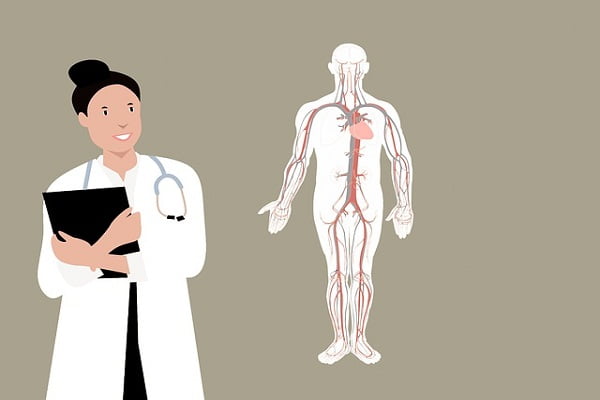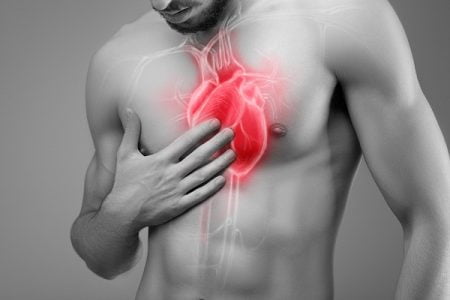How Is Angina Treated?
- Updated on: Jun 26, 2024
- 3 min Read
- Published on Apr 19, 2021


What is the treatment of angina?
There are many ways for angina treatment, including changes in lifestyle, drugs, medical procedures, and surgery. The goal of these treatments is to reduce the frequency and severity of your symptoms and to lower the risk of future heart attack, stroke and death.
If the risk is too high, you may receive a combination treatment such as including a surgery and medication. Surgery may also be required when medication doesn’t work.
If the risk of having a heart attack or stroke is low, angina may be treated to significantly reduce the risk by medication and lifestyle changes.
But sometimes, if you have unstable angina that occurs when you are even at rest or in sleep or that does not go after resting, you need an immediate intervention.
Lifestyle Changes
- Making certain lifestyle changes can help prevent episodes of angina.
- Making lifestyle changes that help lower your risk for coronary heart disease can help you avoid episodes of angina.
- Quitting smoking helps in reducing the risk of angina episodes. Smoking can damage and make your blood vessels rigid and raise the risk for coronary heart disease
- Relax and take rest breaks if physical exertion triggers your angina
- Learn to handle stress. Try to avoid situations that make you stressed if stress triggers your angina. Avoid large meals if food is the trigger
- Follow a healthy diet
Read more about prevention of angina through lifestyle changes.
Medicines
If you have stable angina, your doctor will try to treat it with medications and lifestyle changes alone. You may not need angioplasty with stenting.
Several medications that can improve angina symptoms are:
Aspirin
Aspirin makes your blood thin and reduces its ability to clot. The blood can easily flow through narrowed heart arteries. Preventing blood clotting may reduce your risk of a heart attack.
Nitrates
Nitrates are generally used to treat angina. These medicines can relax and widen your blood vessels to allow more blood to flow to your heart muscle.
The most common form of nitrate used to treat angina is tablets, which are put under the tongue for immediate relief.
Clot-preventing drugs
These medications can help prevent blood clots by making the blood platelets less likely to stick together. Some examples are clopidogrel, prasugrel and ticagrelor.
Beta blockers
Beta blockers can block the effects of a hormone called epinephrine (adrenaline). Your heart then beats relatively slowly and has to do lesser work. This reduces the blood pressure. Beta blockers also help the blood vessels to relax and prevent angina.
Angiotensin-converting enzyme (ACE) inhibitors
ACE inhibitors are used to reduce your blood pressure. These medicines reduce or stop the activity of a hormone called angiotensin II, which narrows down the blood vessels. ACE inhibitors improve the blood supply in your body.
Calcium channel blockers
Calcium channel blockers relax your arteries and increase the blood flow. They help in relaxing and widening the blood vessels.
Statins
Statins block the effects of an enzyme in your liver that makes cholesterol. Reducing blood cholesterol levels helps prevent further damage to your coronary arteries and reduce the risk of a heart attack or stroke.
Ivabradine
Ivabradine has a similar effect as beta-blockers. It slows down the speed of your heart beat. However, it works in a different way to beta blockers.
Nicorandil
Nicorandil is a potassium channel activator that cause the widening of your coronary arteries to increase blood flow to the heart.
Ranolazine
Ranolazine helps relaxing the muscles of your heart to improve blood flow and prevent angina attacks. Unlike other medications to prevent angina attacks, ranolazine doesn’t change the speed of the heart beats, and therefore is a more suitable form of treatment for people with abnormal heart rhythms (arrhythmia).
Immediate relief from symptoms of angina
Glyceryl trinitrate is a drug used to provide immediate relief from the symptoms of angina. It can also be used as a preventative measure before doing activities that can trigger or cause angina, such as exercise.
Glyceryl trinitrate belongs to nitrates that work by relaxing and widening the blood vessels that increase the blood supply to your heart.
Glyceryl trinitrate is available in the form of tablet, which dissolves when kept under your tongue. It is also available as a spray. You may experience headaches, flushing, and dizziness as side effects of this medicine.
Surgery
Surgery is recommended if medicines do not help improve the angina symptoms. However, you’ll likely have to continue medication even after having surgery.
Following surgeries are done:
- coronary artery bypass graft (CABG) –a portion of the blood vessel is taken from another part of your body and used to re-route the flow of blood and bypassing the blocked or narrow artery
- percutaneous coronary intervention (PCI) – a narrowed portion of the artery is opened using a small implantable device called a stent












